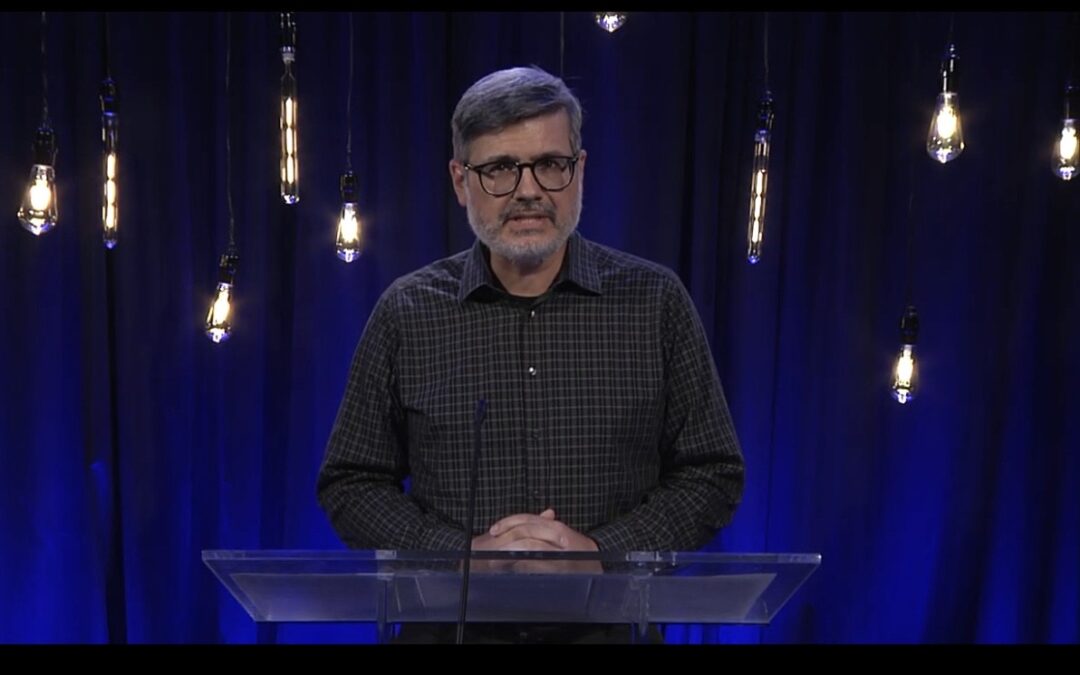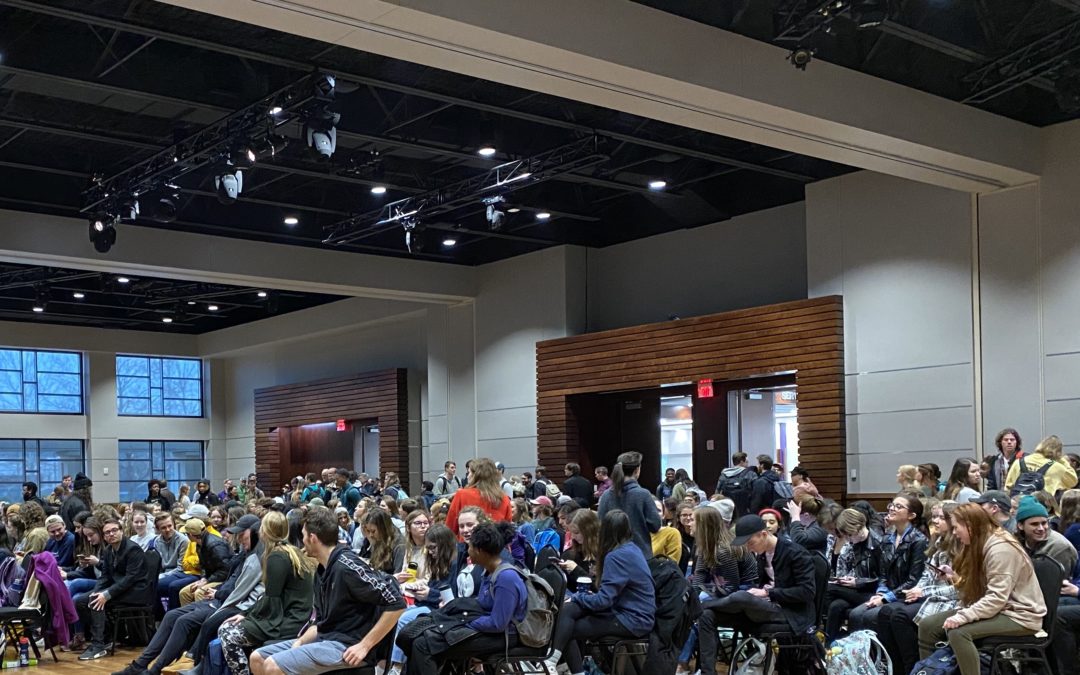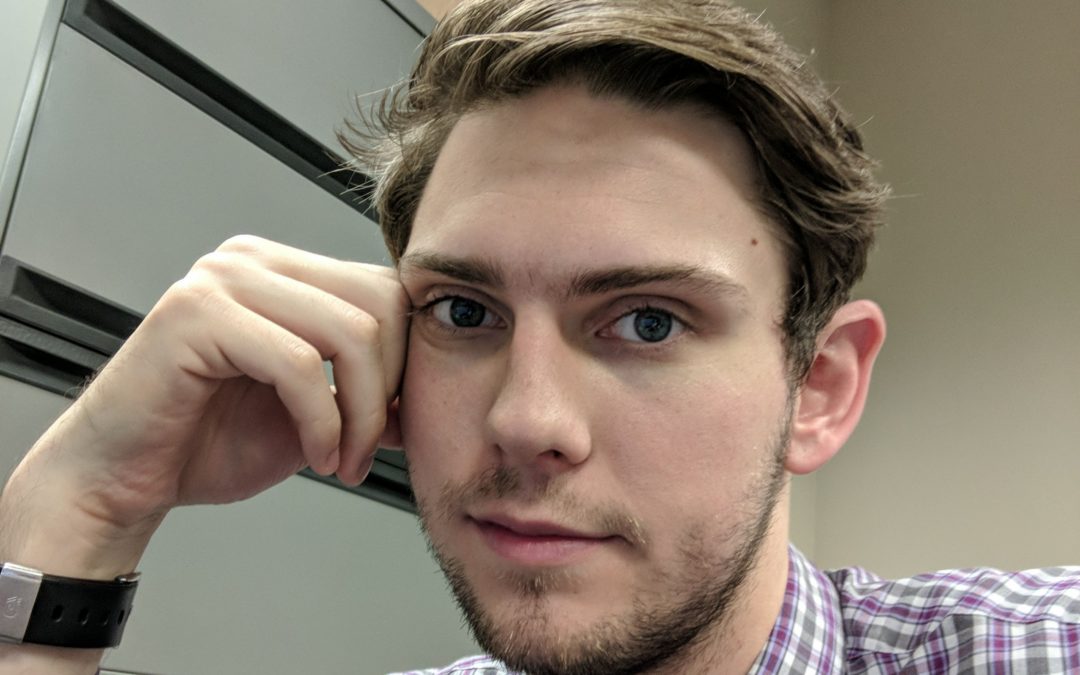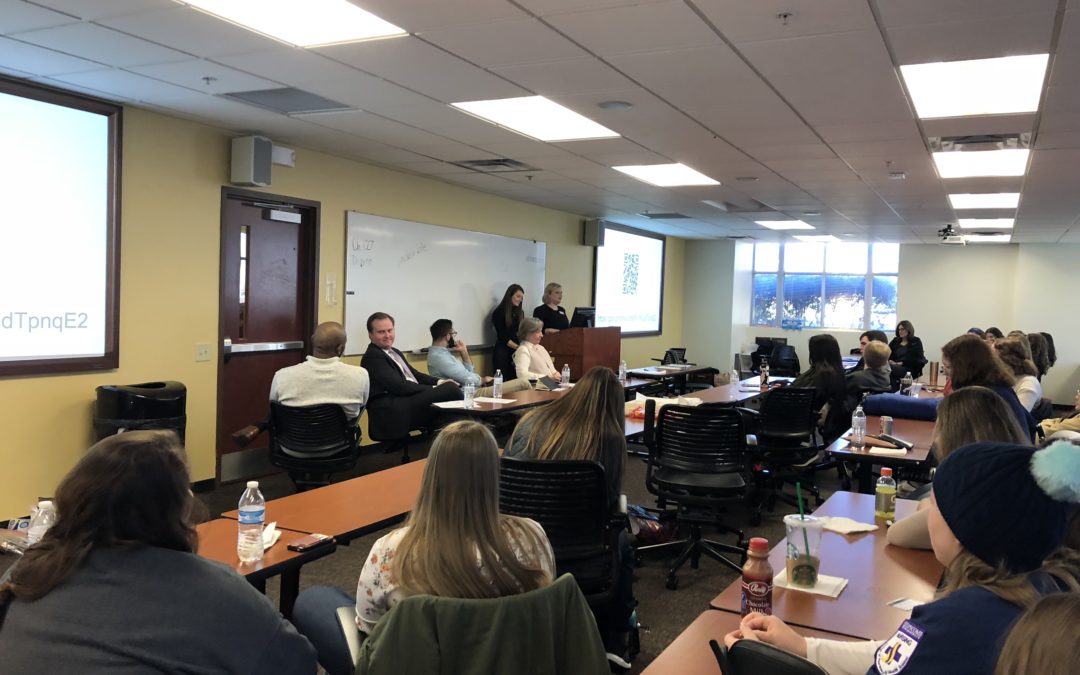
by Taylor McKnight | Aug 26, 2020 | News, News Slider
Students have the chance to choose between virtual and in-person learning this semester, but because of COVID concerns, chapel will be online only. On the pre-COVID years, students typically would be preparing on Tuesday mornings to attend chapel with their friends. Now, students need to check their computers instead. The Gathering, the large chapel that takes place at 10:55 every Tuesday morning in Allen Arena, is virtual for the fall semester out of health and safety concerns. Beginning this week, students have the opportunity to watch chapel from their laptops or phones on Tuesday mornings. Lipscomb will track chapel attendance by iAttended, which is an app every student will check into before watching a chapel service. Senior education major Jill Sanders says she understands, but that she will still miss the in-person environment. “It will be interesting,” Sanders said. “I really wish I could just go into the stadium (Allen Arena), but I get it.” Every student is required to attend at least 80 percent of chapels for the semester. The Gathering will be pre-recorded videos. Students will need to watch these videos within one week of the chapel itself. The app also tracks when a person watches a video and how long they have watched the video. Josiah Jordan, a senior, said he also misses the old environment. “Although I miss seeing everyone in person at the gathering, I thoroughly enjoyed being able to hear from several people within the Lipscomb community.” The first virtual chapel was Tuesday morning via iAttended, where students were greeted by Al Sturgeon, who discussed how The Gathering will look this semester. “Every...

by Lumination Staff | Feb 2, 2020 | BREAKING NEWS, News Slider
Vice President of Student Life and Dean of Students Al Sturgeon hosted a breakout chapel on Thursday to be used as an open forum for students to address their grievances over their concerns about Tuesday’s Gathering talk by Siran Stacy. Sturgeon asked that there be no media in the talk to respect student privacy and create a safe place. SGA President Jack Webber shared his thoughts on how the breakout chapel went. “I think the way he’s [Al Sturgeon] handled this speaks to his character,” said Webber, “and it speaks to a vision — I think is going to take student life to a good place as it navigates what does Lipscomb believe and what does Lipscomb do about this kind of stuff.” Some students are still calling for more clarity from the university. “We still need more clarity on where exactly the university stands in affirming the identities of members of the LGBT community and as far as recognizing that they are safe and supported at this university,” said Codie Miller. “But I do appreciate what he did here today, and we’re just going to keep pressing for more clarity on that.” The breakout chapel, held in the Shinn Center ballroom, was standing-room-only, with the crowd spilling out into the lobby. Following the chapel Provost Craig Bledsoe sent an email to faculty that addressed the issues from Tuesday’s Gathering: “You are likely aware in the Gathering on Tuesday the speaker, Siran Stacy, was invited to talk about finding faith and purpose after the tragedy of losing his wife and four children when their car was struck by a drunk driver in...

by Cavin Jacobson | Jul 20, 2019 | News Slider, Opinion
Ah, summer school — A place where (according to the movies) delinquent students who flunk a class during the school year have to spend their summer instead of enjoying vacations. Summer school is a punishment for many a high-schooler, a tool to keep students motivated to do their work or be forced to redo it during their precious break. Summer school in college is rarely talked about in the movies, however: Is summer school still for the unmotivated college students? Is it a punishment for not taking school seriously? It is neither of those. In fact, in my experience, it is the exact opposite. Students who take summer classes during Lipscomb’s summer semester are the most motivated. They want to graduate on time, or graduate early, or in my case graduate with extra degrees that may or may not help with graduate school admissions. Other than the winter semester (known as Wintermester at Lipscomb) Summer Semester is the shortest of the school semesters. In fact, it is broken up into three different semesters that are each five weeks long: Maymester, Junemester, and Julymester (catchy names, I know). Some classes last 10 weeks, throughout two of the semesters. These are called “full-term” summer semester classes, but they are just June and July. This means you can get three credit hours knocked out in five weeks or 10-weeks! Sure, the classes are fast-paced and you typically have to be there every day or for four hours on one day, but most professors I’ve had are efficient teachers and don’t ever hold you the entire length of the class. I’ve also learned...

by George Wong | Mar 30, 2019 | News Slider
Lipscomb held its second annual chapel dedicated to women’s empowerment week on Thursday. Sophomore Bana Faraj hosted the event, helped organize and even participated as spokesperson during the break-out chapel. “Women don’t realize that they self-hate, and that can cause them to not be kind and in some cases to hate on other women,” Faraj said. “So when we give them a second to step back and examine, ‘how do I feel about myself,’ it allows them to understand that how you feel about yourself reflects how you treat others.” Before the event, Faraj showed raw nervousness and excitement as flocks of people came to listen in support of the cause. Along with the five speakers Agnus De Leon, Kavya Patel, Rojeda Merani, Ansley Glenn and Shaniya Pleasant, Faraj’s passion and positive energy radiated throughout the room. “This means a lot because I think all around the world we have these conversations all the time,” Faraj said. “It doesn’t matter what part of the world you are from; these conversations are so important.” The panel showcased five female students from different ethnicities and backgrounds, with the main topic being beauty standards around the world and how they affect everything around us. Each individual had their own definition of beauty and the journey towards finding true self-love and worth in today’s society. “I think with men it’s a conversation of understanding how to talk to women, how to approach women and how to be a part of the conversation of uplifting women,” Faraj said. “I think a lot of the times that’s not what men do — some men do, and...

by Charissa Ricker and Carly Reams | Feb 13, 2019 | News Slider
Lipscomb University held three sessions on sexual health and spirituality during the first few weeks of the 2019 spring semester. This two-part article recaps the last two sessions. Charissa Ricker covered the second session, and Carly Reams covered the third. Second session Lipscomb held a panel discussion on Jan. 24 during a breakout chapel to address students’ questions about sexual health and spirituality. After a campus-wide survey about sexual health was sent out last semester, the Student Health Advisory Committee introduced a series on sexual health. Director of Health Services Erin Keckley spent the first session discussing the results of the survey. The second session panel consisted of Keckley, Kathy Hargis (director of Risk Management and Title IX), Pieter Valk (counselor), Josh Roberts (dean of Student Development) and Prentice Ashford (dean of Office of Intercultural Development). Students were able to submit questions anonymously for the panel to answer ranging from the different health services on campus to Lipscomb’s policies on sexual health. “We believe that if you read the Bible, and you read Christ’s teachings, that sexuality is designed for the context of marriage,” Roberts said. “And so for that reason our policies expect that students who are not married refrain from sexual activity.” The Health Center, the Counseling Center and the Title IX office are three places students can get help on-campus without having to worry about the consequences of Lipscomb’s policies. Roberts stressed the complete confidentiality between those offices and the code of conduct and the disciplinary office. Title IX and the amnesty clause were explained deeper by Hargis, who shared how students who have broken Lipscomb’s...






